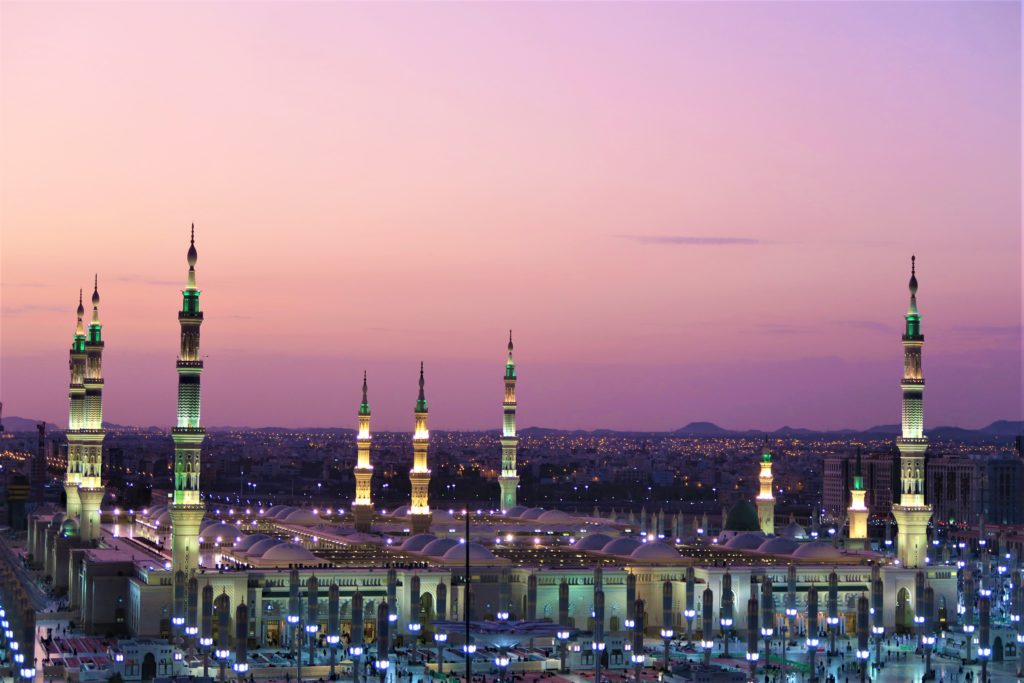Awais Rabbani, Missionary of the Ahmadiyya Muslim Jamaat

Name: Ramla bint Abi Sufyan
Known as: Umm-e-Habiba
Born: 594 AD
Father’s Name: Abu Sufyan ibn Harb
Brother: Muawiyah
Background
Hazrat Umm-e-Habibara was the daughter of the renowned chieftain of Quraish, Abu Sufyan ibn Harb. Abu Sufyan chose to reject Islam in the beginning and remained a resolute foe till the conquest of Mecca. However, his daughter refused the arrogance her father exhibited and embraced Islam very early on.
She was first married to Ubaidullah bin Jahsh. As the persecutions intensified, she migrated to Abyssinia alongside her husband. She had a daughter named Habiba and hence, earned the epithet of Umm-e-Habibara (mother of Habiba). Her husband however renounced Islam and after his demise, she was left in a frail state seeking a support in this foreign land.
Marriage to the Prophetsa
Owing to the hardships and animosity the Quraish harboured against Muslims, the Holy Prophetsa saw it wise to send a marriage proposal to Hazrat Umm-e-Habibara on account of the fact that this matrimony, with the daughter of a chieftain, would help diminish the hostile atmosphere among the Quraish. Khalid bin Saeed is said to have represented her case and hence, the marriage took place in Abyssinia. She later migrated to Medina to reunite with her husband.
Thirst for knowledge
Around 65 ahadith have been attributed to her. She guided and taught women important matters of Islam. It is narrated on the account of Humaid bin Nafi that Hazrat Zainab bint Abu Salama said, “I went to Umm-e-Habiba, the wife of the Prophet, when her father, Abu Sufyan bin Harb had died. She asked for a perfume which contained yellow scent or some other scent, and she first perfumed one of the girls with it and then rubbed her cheeks with it and said, ‘By Allah, I am not in need of perfume, but I have heard Allah’s Messenger saying, “It is not lawful for a lady who believes in Allah and the Last Day to mourn a dead person for more than three days unless he is her husband, for whom she should mourn for four months and ten days.”’” (Sahih al-Bukhari, Hadith 5334)
Piety
The Holy Prophetsa was utterly devoted to God and expected the same from all his wives. It goes without saying that all the mothers of the faithful would fervently supplicate before God for the success of the mission the Holy Prophetsa had brought and to also grant them the courage to remain steadfast.
Hazrat Umm-e-Habibara held a unique position among them. It is narrated on her own authority:
“A house will be built in paradise for anyone who prays in a day and a night twelve rak‘aat.” She added, “I have never abandoned [this practice] since I heard it from the Messengersa of Allah. (Sahih Muslim, Hadith 728 a)
Regard for the Prophetsa
Despite the enmity her father harboured against Islam, the Holy Prophetsa always instructed her to be kind to him and give him the due respect. However, once, when Abu Sufyan visited her daughter and went on to sit on the same mattress the Prophetsa used to sit on, she folded it up immediately and stated that the foe of the Holy Prophetsa could not sit on the same place as her husband.
It was only due to the fact that she could not bear to see the sight of the enemy of Islam who had hurt the Holy Prophetsa for so long to occupy or even share the same place reserved for the Prophetsa of Allah.
Also, she was aware that the level of pureness and cleanliness Islam prescribed for a believer and maintained by the Holy Prophetsa would not be retained by her father.
Anyhow, the devotion and love she had for the Holy Prophetsa had no comparison. In fact, this was the case with each and every one of his wives. The Prophetsa would show such affection and care to them that they all would consider themselves the most privileged.
She was considerate of her relatives
Islam gives great stress on maintaining good ties with relatives. She too was considerate of these ties and treated them accordingly.
Hazrat Musleh-e-Maudra narrates one such incident in one of his books in the following words:
“On one occasion, [the Holy Prophetsa] entered the room of his wife Umm-e-Habibara and saw her in a tender embrace with her younger brother Muawiyahra –who would later become a great Islamic ruler. Instead of displeasure, the Prophetsa was moved by this display of sibling love. He sat next to her and asked her if she loved Muawiyahra. She replied positively. To this, the Prophetsa replied, ‘If you love him, then I love him also.’ How happy must she have felt at these words and at seeing the Holy Prophetsa look on her relatives, not as a stranger but through her eyes! The depth of his love, by which he cherished those whom she held dear [must have filled her with joy].” (Muhammad: The Great Exemplar, pp. 13-14)
Demise
She lived on to see the reign of her brother, Amir Muawiyahra. She died at the age of approximately 74 and was buried in Jannatul Baqi.


Excellent work
Great work